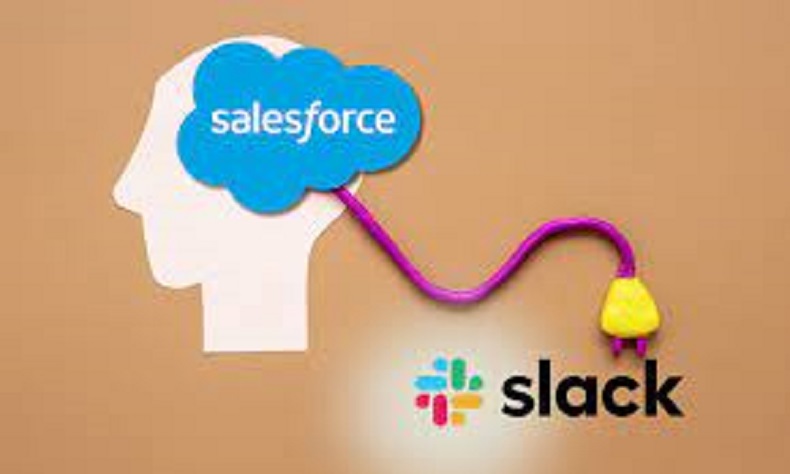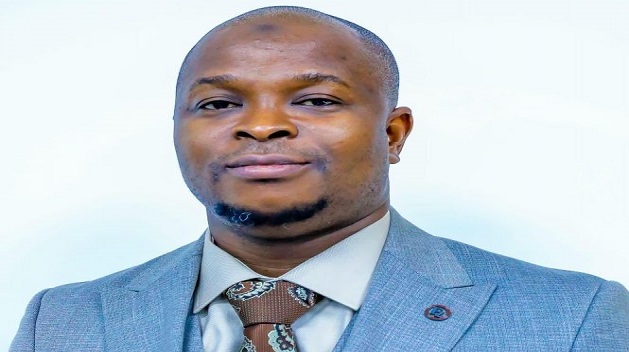Telecom
Salesforce Launches Trusted Generative AI for Customers in Slack


- AI-powered search that delivers personalised, intelligent responses to any question: Users can ask a question conversationally and get a concise answer based on relevant Slack messages. Users can find what they need faster, whether they want to learn about a new marketing campaign, get up to speed on company policies, glean insights about past decisions from historical context, or define unfamiliar acronyms.
- Channel recaps that generate key highlights from accessible channels: Users can catch up on unread messages, summarise the last seven days, or set a custom date range to summarise. Users can quickly catch up after time away from work, get up to speed on a new project, or jump in quickly to help resolve time-sensitive issues.
- Thread summaries that catch users up on long conversations: Users can get the gist of a long conversation in one click, and clear sources are included in each summary, allowing users to dive deeper into a highlight. Users can instantly summarise key decisions and next steps from a thread with a lot of back and forth, get up to speed on a customer support ticket, or catch up on a team stand-up to get a bird’s eye view of priorities.
- Easily identify and bring in the right subject matter expert when a customer has a specific question or concern during a deal cycle.
- Summarise an account channel and get the context they need to prepare for a customer meeting more effectively.
- Generate key takeaways from a long discussion about deal progress to help keep the team on track.
- Find answers in past incident channels to uncover potential solutions and apply learnings.
- Get the right information they need so they can quickly get situated and jump in to help find a resolution.
- Recap an incident channel and use it as a starting point to draft a root-cause analysis faster.
Slack’s trusted and secure AI experience: Trust is the number one value at Salesforce, and Slack is committed to building AI products safely, responsibly, and ethically.
- Slack AI runs on Slack’s infrastructure and upholds the same security practices and compliance standards that customers expect.
- Slack AI’s large language models (LLMs) are hosted directly within Slack, ensuring customer data remains in-house and exclusively for that organisation’s use.
- Customer data remains siloed and will not be used to serve other clients, directly or indirectly.
- Slack AI does not use customer data for LLM training purposes.
The future of native generative AI in Slack: More features that help users summarise and prioritise information are on the horizon. Soon, Slack AI will create digests summarising key highlights from channels that users want to stay informed on but may not require immediate attention, enabling them to stay up to speed on what they could otherwise miss while focusing on their top priorities. Additionally, Slack is building a native AI integration with Einstein Copilot, a new conversational AI assistant for Salesforce CRM, that will provide answers to questions directly in Slack that are grounded in trusted customer data.
- “Slack AI is not only a huge productivity boost — it’s easy to use, right where we already work in Slack. Our team loves how quickly they can find answers, which translates to faster decision-making and a greater focus on work that really drives an impact.” – Kate Earle Jensen, Head of Sales and Partnerships, Anthropic
- “During the pilot program, we experienced firsthand the major productivity gains that Slack AI could drive for our business. Slack AI has helped speed up our employees’ work exponentially.” – Zach Hyman, Co-CEO, SpotOn
- “At Perplexity, we’re building the next generation answer engine, applying the most advanced LLMs to make knowledge instant and accessible. Now with Perplexity Push, we’re delivering an enterprise integration that brings AI-powered insights directly into Slack. Teams can easily stay in-the-know on topics they care about where conversations and collaboration already happens.” – Aravind Srinivas, CEO, Perplexity
- “Slack AI helps users unlock the full potential of company knowledge in Slack, all while supporting existing security, privacy, and compliance controls.” — Irwin Lazar, President and Principal Analyst, Metrigy
Telecom
Study Shows Blocks in Telegram are Pushing the Underground Out

Modern messengers, such as WhatsApp, Telegram, Signal and others, are often used for illicit purposes. Kaspersky Digital Footprint Intelligence has conducted an in-depth monitoring of over 800 blocked cybercriminal Telegram channels between 2021 and 2024.

While a range of illegal activities continues to be hosted on the platform, its environment has become noticeably more challenging for sustained underground operations.
Telegram’s bot framework and other built-in features make for a low-effort ecosystem for the underworld.
A single bot can simultaneously manage queries, process cryptocurrency payments, and instantly deliver stolen bank cards, info-stealer logs, phishing kits, or DDoS attacks to hundreds of buyers per day, often without operator involvement.
Unlimited, non-expiring file storage eliminates the need for external hosting when distributing multi-gigabyte database dumps or stolen corporate documents. This frictionless automation naturally favours high-volume, low-price, low-skill offerings, such as leaked bank cards or other data, hosting malware, etc.
High-value, trust-dependent deals (for instance, zero-day vulnerability information) still remain on reputation-gated dark-web forums.
Kaspersky researchers found two clear trends related to illegal activities on Telegram. The average lifespan of shadow channels has increased, with the proportion of channels surviving over nine months more than tripling in 2023-2024 compared to 2021–2022. At the same time, Telegram’s blocking activity has risen significantly.
Monthly takedown figures recorded since October 2024 – even at their lowest – are comparable to the peak levels seen throughout 2023, and the overall pace continued to accelerate in 2025. This impedes malicious activities.
Other disadvantages of Telegram for cybercriminals include the lack of default end-to-end (E2E) encryption for chats, the inability to use their own servers for communication (due to the messenger’s centralised infrastructure), and closed server-side code, which makes it impossible to verify its functionality.
As a result, several established underground communities, including the nearly 9,000-member BFRepo group and the Angel Drainer malware-as-a-service operation, have already begun shifting primary activity to other platforms or proprietary messengers, citing repeated disruptions of their activities on Telegram.
“Fraudsters find Telegram a convenient tool for many malicious activities, but the risk-reward balance is clearly shifting. Channels are managing to stay online longer than a couple of years ago, yet the dramatically higher volume of blocks means operators can no longer count on long-term stability.
“When a storefront or service disappears overnight – and sometimes reappears only to be removed again weeks later – building a reliable business becomes much harder. We’re starting to see the early stages of migration as a direct consequence,” comments Vladislav Belousov, Digital Footprint Analyst at Kaspersky.
Telecom
Galaxy Backbone Marks Two Decades of Powering Nigeria’s Digital Evolution

Galaxy Backbone Limited (GBB), the Federal Government’s leading ICT infrastructure and shared services provider, will mark its 20th anniversary in June 2026 with a grand celebration that reflects two decades of innovation, resilience, and national impact.

Since its inception in 2006, Galaxy Backbone has been at the heart of Nigeria’s digital transformation journey; building the technological foundation that supports modern government operations and public service delivery. What began as a bold vision to connect government has grown into a critical national platform that drives efficiency, transparency, collaboration and innovation across the public sector.
Over the last 20 years, GBB has helped redefine how government works. By providing secure connectivity, enterprise-grade data centre services, cloud platforms, and digital collaboration tools, Galaxy Backbone has enabled Ministries, Departments and Agencies (MDAs) to move from fragmented, paper-based processes to more integrated, technology-driven systems.
This transformation has improved government-to-government coordination, strengthened engagement with businesses, and enhanced the delivery of services to citizens. Today, the digital infrastructure powered by Galaxy Backbone supports thousands of government users, hundreds of institutions, and critical national platforms that Nigerians rely on daily.
A key part of this journey has been the Federal Government of Nigeria’s investment, managed by GBB in robust national infrastructure, high-capacity and world class data centres, fibre-optic connectivity across multiple states, secure hosting services, and shared platforms that have helped government operate more efficiently and responsively. These contributions have played a pivotal role in Nigeria’s progress toward a more digital, agile and citizen-centered public service.
Galaxy Backbone’s impact has earned both national and global recognition. In 2025, the organisation was ranked first overall in the Federal Government Website Performance Scorecard, reflecting its commitment to excellence in digital service delivery. Internationally, GBB, a couple of years ago, received the prestigious United Nations Public Service Award, a testament to its leadership in promoting a whole-of-government approach to digital transformation.
As GBB celebrates two decades of service, this milestone is more than an organisational anniversary; it is a celebration of Nigeria’s digital evolution. It is an opportunity to appreciate how collaboration between government, industry partners, technology providers, and dedicated public servants has helped build a stronger, more connected nation.
The June 2026 anniversary celebration will bring together stakeholders from across the public and private sectors to reflect on the journey so far, acknowledge the partnerships that have shaped this success, and chart an ambitious course for the future. It will highlight how collective effort, shared vision, and innovation have positioned Galaxy Backbone as a strategic national asset.
Looking ahead, Galaxy Backbone remains committed to deepening digital transformation across the country; expanding infrastructure, strengthening cybersecurity, enhancing service delivery, and supporting the Federal Government’s drive for a smarter, more efficient and digitally empowered Nigeria.
At 20 years, Galaxy Backbone stands proud of its past, confident in its present, and inspired by the limitless possibilities ahead.
Telecom
Galaxy Backbone Marks 20 Years, Tops FG Website Scorecard

Galaxy Backbone Limited (GBB), Nigeria’s leading federal ICT infrastructure provider, has announced its 20th-anniversary celebration for June 2026, marking two decades since unifying government’s fragmented digital landscape into a secure national platform.

Galaxy Backbone
The announcement by Head of Media and Corporate Communications Chidi Okpala follows GBB’s top ranking in the 2025 Federal Government Website Performance Scorecard by the Bureau of Public Service Reforms, cementing its leadership in digital service delivery and transparency.
Managing Director Professor Ibrahim Adepoju Adeyanju described the milestone as celebrating Nigeria’s shift from paper-based silos to a cloud-first, integrated government. Achievements include the UN Public Service Award for 1-GOV.net, high-speed fiber deployment for G2G and G2B interactions, IPPIS payroll rollout, and pandemic-era digital support.
The June event will gather public-private stakeholders, global tech partners, and policymakers to unveil GBB’s next-decade roadmap emphasising cybersecurity, AI in public service, and rural connectivity.
GBB positions itself at the forefront of Nigeria’s 2030 digital nation drive, with 20 years of innovation signaling a smarter, connected future.

 E-Financial3 days ago
E-Financial3 days agoAngst as FG Demands 7.5 Percent VAT on Mobile Bank Transfers, USSD

 News3 days ago
News3 days agoMoniepoint Launches Second Cohort of DreamDevs Initiative to Double Down on Africa’s Tech Talent Pipeline

 E-Financial3 days ago
E-Financial3 days agoThe Missing Pieces in Nigeria’s Banking Recapitalisation

 E-Financial3 days ago
E-Financial3 days agoNGX lists 3.156bn UBA shares, boosting capital to N513Bn

 E-Financial2 days ago
E-Financial2 days agoPaystack Expands Beyond Payments into Banking

 Telecom3 days ago
Telecom3 days agoGlo Unveils Immersive Gaming Experience, Travel Saga

 E-Business3 days ago
E-Business3 days agoHalf of Global Companies Build SOCs to Enhance Cybersecurity, with a Focus on Human Expertise

 General News3 days ago
General News3 days agoNITDA DG Reaffirms Nigeria–U.S. Partnership on Data Privacy, AI and Cybersecurity



























